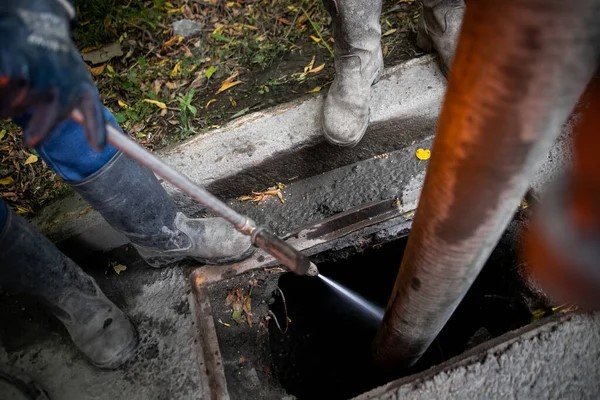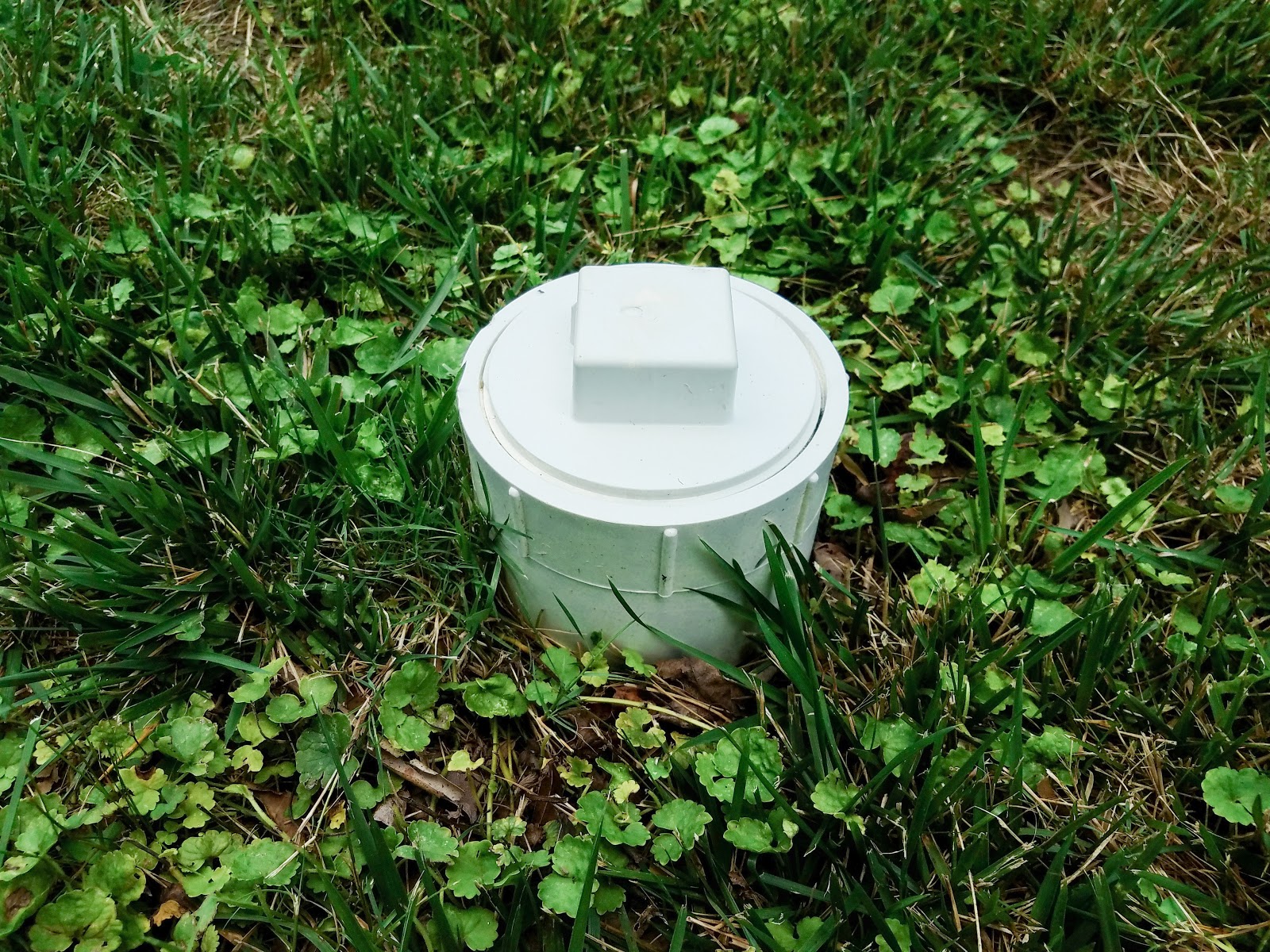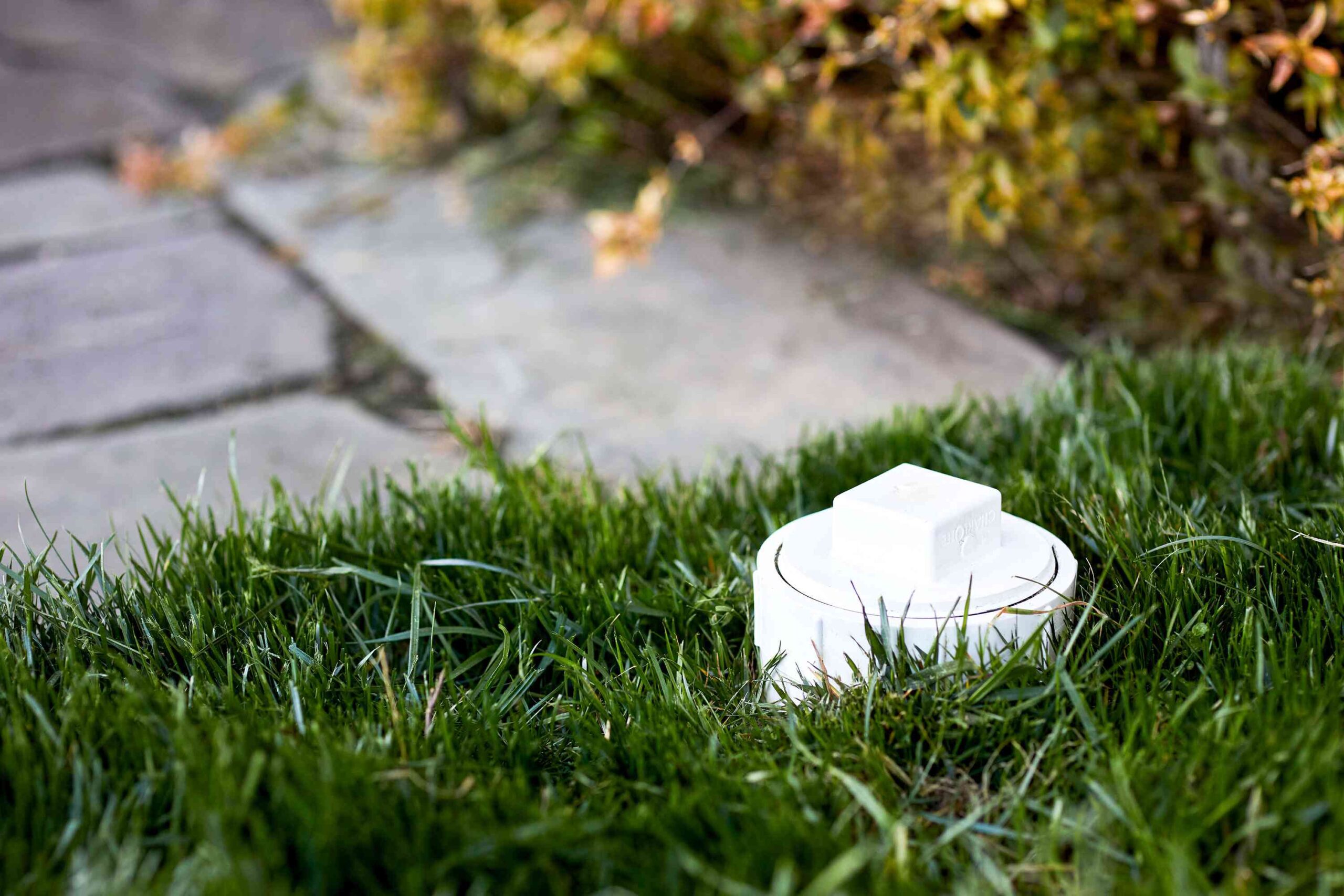Drain Clean Out Servicesin Lapeer MI
Professional Drain Clean Outs for Clear and Flowing Drains
We Are Locally Owned & Operated For Over 37 Years
Contact Us Today!
We Serve Businesses In And Around The Following Cities:
About Drain Clean Out Services
Introducing Drain Clean Outs for Commercial Properties in Lapeer
Rolling through the heart of Michigan, Lapeer’s bustling economy is a testament to the importance of maintaining efficient networks — not just of commerce, but vital infrastructure too. One system often overlooked in commercial properties is the drainage setup. Where there are buildings, there are drains, and where there are drains, there are potential issues waiting to occur. The solution? Professional drain clean outs. It’s crucial for businesses to ensure their property’s drain systems are well-maintained and trouble-free. Remember, when the water runs smoothly, so does the business.
Today, it’s time to dive deeper and dispel the myths surrounding drain clean outs, a critical and often overlooked component of property maintenance. We’re shedding light on the entire process, discussing the benefits, providing real-world applications, and revealing their imperative integration in commercial properties across Lapeer. Our guide features valuable insights from industry experts, like D&J Contracting, to ensure you get an insider’s perspective. Buckle up—let’s start at the beginning.
The Crucial Process of Drain Clean Outs
Consider your commercial property as a living entity. It drinks, it eats, and inevitably, it must also dispose of waste. Drain clean outs are like the fitness routine keeping your property in top shape. They are the exits to your property’s drainage system—providing an access point for yard drainage contractors to flush and clean out blockages. This ranges from unclogging a collapsed pipe repair to conducting a routine maintenance check.
The process starts with a professional exterior drainage contractor examining your property’s drains, from the basement perimeter drain to the downspout drainage points. The experts at D&J Contracting, for instance, would locate the cleanouts, open them up, and use various techniques to cleanse the system. One favored method is hydro jetting drain lines. It’s a sustainable practice that blasts through debris, effectively unclogging any blockage within the system.
Unearthing the True Benefits of Drain Clean Outs
When Lapeer businesses regularly schedule drain clean outs, they enable the smooth running of daily operations and mitigate the risks of unexpected and costly damages. By opting for this preventive maintenance, significant benefits unveil themselves. Firstly, it ensures that your drainage system remains healthy, tackling problems such as a frozen discharge line even before they pose serious inconveniences. Another crucial advantage is reducing the risk of flooding, particularly if the stormwater system incorporates a rainwater manhole.
Moreover, regular check-up services such as outdoor drain installation check also keep your property up to code. Maintenance, repairs, or replacement of an outdoor drainage system can also enhance the value of your property significantly. Commercial property owners trust D&J Contracting for cleaning out their retail or office complexes, enabling a seamless business flow.
Real-world Applications and the Businesses Benefitting
Take a moment to visualize a bustling commercial property amid Lapeer’s vibrant cityscape—a multi-story office building or perhaps a sprawling retail complex. Now, imagine its basement flooded owing to an ignored collapsed pipe or a trench for yard drainage installed incorrectly. You’re not envisioning a pretty picture, are you? This emphasizes the importance of regular drain clean outs and their real-world applications.
Businesses all over Lapeer frequently shoulder the wrath of havoc-wreaking scenarios due to neglected drainage systems. From restaurant chains to retail giants, drain clean outs are no longer a luxury but a necessity. A professionally executed outdoor drain installation can significantly uplift the exteriors’ aesthetics and functionality near public spaces or a prominent Lapeer street.
Choosing the Right Contracting Services for Drain Clean Outs
Service, like any other investment, must assure a high return. Therefore, choosing experienced and professional yard drainage services becomes crucial. An industry-recognized exterior drainage contractor like D&J Contracting promises a result-driven strategy towards drain clean outs.
With the perfect blend of experience and knowledge, D&J Contracting critically ensures high quality and reliable service. From installing a rainwater drainage ditch to executing the tedious process of trench drain backyard installation, their services stand reliable. Their seasoned crew dedicatedly works to strategize the most effective way to solve any drain issues your commercial property may encounter.
Securing a Future with Well-maintained Drains
Hopefully, this comprehensive guide has shed light on the importance of drain clean outs for commercial properties in Lapeer. The process might seem overwhelming, but with help from professionals like D&J Contracting, it becomes as easy as breeze. The numerous benefits and real-world applications underscore the importance of maintaining functional, clean, and efficient drains.
Remember, drain clean outs aren’t a one-off solution but an ongoing commitment to your commercial property’s health. By partnering with the right professionals, you ensure the long-term success of both your building’s vital systems and your business. So, whether you’re in Lapeer or the neighboring cities, you now know the significance of drain clean outs and the role D&J Contracting can play in ensuring your drains run smoothly.
Prepare your business to face the future confidently, underpinned by a stalwart drainage system, a system that supports you much like the pillars of your property. Maintain your commercial property, just as you would maintain anything valuable, because well-maintained drains equal a well-maintained business.
Drain Clean Out Services Gallery


Call Us Today to receive your Free Quote for
Drain Clean Outs in Lapeer
Serving: Lapeer, Michigan

About Lapeer, Michigan
|
|
This section needs additional citations for verification. (January 2020)
|
By an ordinance of the Congress of the United States passed on July 13, 1787, the area lying northwest of the Ohio River, though still occupied by the British, was organized as the Northwest Territory. Lapeer County was once part of the Northwest Territory. In January 1820, the county of Oakland was formed, which served the area now known as Lapeer, until the County of Lapeer was formed in 1837, when Michigan became a state. The first elections were for county officers, with 520 persons voting in 1837.
Folklore claims Lapeer was derived from the naming of the south branch of the Flint River, which flows northwestward in Lapeer County. French and Indian traders frequently passed over this section of the county and through the river, ultimately naming the city for the stone that lay at the river bottom. In French, stone is called “la pierre”; the English pronunciation of these words gives Lapeer. The river was named Flint, synonymous with stone. (See List of Michigan county name etymologies.)
It is also believed that the first settlers who came from New York State may have brought the name Lapeer from a similarly named city in their home state. A third supposition is that French missionaries named the city Le Pere, meaning The Father.
The first settlers in Lapeer were a group of men named Alvin N. Hart, Oliver B. Hart, and J.B. Morse. The most prominent of the three, Alvin N. Hart, was born in Cornwall, Connecticut, on February 11, 1804. He came to Lapeer in 1831 and platted the Village of Lapeer, November 8, 1833. The plat was registered in Pontiac on December 14, 1833, in the County of Oakland; four years before Michigan became a state and Lapeer became a county. Alvin N. Hart became a State Senator in 1843, representing Lapeer, Oakland, Genesee, Shiawassee, Tuscola, Saginaw Counties and the entire Upper Peninsula. He was instrumental in having the State Capitol relocated from Detroit to Lansing. Hart died on August 22, 1874, and is buried in Lapeer.
The second group of settlers were Enoch J. White and his family. He was born in South Hadley, Massachusetts in 1814. He came to Lapeer in 1833. Of pioneer stock, Alvin N. Hart and Enoch J. White both had the initiative to start new communities. Mr. Hart formed Lapeer and Mr. White formed what was then known as Whitesville, which now consists of the western portion of Lapeer. A tamarack swamp once separated these two settlements.
Other distinguished natives include John T. Rich, former governor of the state of Michigan; Louis C. Cramton, special assistant to the U.S. Secretary of the Interior in 1931 and 1932. He led studies of the area around the Colorado River that led to the establishment of the first National Recreation Area, Lake Mead National Recreation Area; Charles Potter, whose son became a U.S. Senator; William Reed, Big Ten Football Commissioner; and Marguerite deAngeli, internationally known writer of children’s books.
At one time, there were two courthouses. The White family erected one at the present site of the Old Lapeer High School at Main and Genesee Streets, while the Hart family erected one at Nepessing and Court Streets. The Board of Supervisors purchased the Hart courthouse for $3,000, which is now the oldest continuously running courthouse in the state of Michigan and one of the oldest 10 courthouses in the United States. White’s courthouse later became the first school in Lapeer called Lapeer Academy.
Over time, it became evident that the business district would be near the Courthouse, so the city’s founders moved the Opera House piece-by-piece to its present location at the southeast corner of Court and Nepessing Streets in 1879. The building is now known as the White Block.
Lapeer’s first church was the Congregational Church; organized in 1833, the same year Lapeer was platted. The Methodist Episcopal Church opened its doors a year later, followed by the Baptist Church in 1858, the Immaculate Conception Catholic Church in 1866, the Universalist Church in 1873, the Methodist Protestant Church in 1877 and the Grace Episcopal Church in 1882.
Lumbering was the sole industry in the early days of Lapeer. The flourishing lumber business attracted the New York Central Railroad and Grand Trunk Railroad. Lapeer later became the intersection to two state trunk lines: M-21 and M-24. Industries today supply the automotive industry with gray iron casting, molded plastics, plastic fabrics, electrical harnesses and stamping.
On October 26, 2010, Lapeer became a founding member of the Karegnondi Water Authority.
On August 15, 2012, the fourth-largest Powerball jackpot was won from a ticket sold at a Sunoco station in Lapeer. The jackpot had an annuity value of $337 million.
According to the United States Census Bureau, the city has a total area of 7.38 square miles (19.11 km), of which 7.13 square miles (18.47 km) is land and 0.25 square miles (0.65 km) is water. It is considered to be part of the Thumb of Michigan, which in turn is a subregion of the Flint/Tri-Cities.
| Census | Pop. | Note | %± |
|---|---|---|---|
| 1870 | 1,772 | — | |
| 1880 | 2,911 | 64.3% | |
| 1890 | 2,753 | −5.4% | |
| 1900 | 3,297 | 19.8% | |
| 1910 | 3,946 | 19.7% | |
| 1920 | 4,723 | 19.7% | |
| 1930 | 5,008 | 6.0% | |
| 1940 | 5,365 | 7.1% | |
| 1950 | 6,143 | 14.5% | |
| 1960 | 6,160 | 0.3% | |
| 1970 | 6,314 | 2.5% | |
| 1980 | 6,198 | −1.8% | |
| 1990 | 7,759 | 25.2% | |
| 2000 | 9,072 | 16.9% | |
| 2010 | 8,841 | −2.5% | |
| 2020 | 9,023 | 2.1% | |
| U.S. Decennial Census 2010 2020 |
|||
As of the census of 2020, there were 9,023 people, 3,652 households, and 1,898 families living in the city. The population density was 1,201.5 inhabitants per square mile (463.9/km). There were 3,921 housing units at an average density of 522.1 per square mile (201.6/km). The racial makeup of the city was 81.7% White, 7.7% African American, 0.5% Native American, 0.7% Asian, 1.0% from other races, and 6.4% from two or more races. Hispanic or Latino of any race were 4.4% of the population.
There were 3,652 households, of which 22.3% had children under the age of 18 living with them, 31.5% were married couples living together, 39.9% had a female householder with no spouse present, 19.3% had a male householder with no spouse present, and 52.0% were non-families. 42.8% of all households were made up of individuals, and 17.7% had someone living alone who was 65 years of age or older. The average household size was 2.09 and the average family size was 2.79.
The median age in the city was 40.3 years. 18.3% of residents were under the age of 18; 10.7% were between the ages of 18 and 24; 26.2% were from 25 to 44; 29.8% were from 45 to 64; and 14.3% were 65 years of age or older. The gender makeup of the city was 53.6% male and 46.4% female.
As of the census of 2010, there were 8,841 people, 3,446 households, and 1,927 families living in the city. The population density was 1,240.0 inhabitants per square mile (478.8/km). There were 3,956 housing units at an average density of 554.8 per square mile (214.2/km). The racial makeup of the city was 88.6% White, 7.6% African American, 0.6% Native American, 0.8% Asian, 0.5% from other races, and 1.8% from two or more races. Hispanic or Latino of any race were 3.9% of the population.
There were 3,446 households, of which 32.6% had children under the age of 18 living with them, 32.1% were married couples living together, 18.3% had a female householder with no husband present, 5.5% had a male householder with no wife present, and 44.1% were non-families. 39.2% of all households were made up of individuals, and 15.6% had someone living alone who was 65 years of age or older. The average household size was 2.22 and the average family size was 2.97.
The median age in the city was 36 years. 24.1% of residents were under the age of 18; 11% were between the ages of 18 and 24; 27.2% were from 25 to 44; 24.2% were from 45 to 64; and 13.5% were 65 years of age or older. The gender makeup of the city was 51.5% male and 48.5% female.
As of the census of 2000, there were 9,072 people, 3,443 households, and 1,979 families living in the city. The population density was 1,635.5 inhabitants per square mile (631.5/km). There were 3,658 housing units at an average density of 659.5 per square mile (254.6/km). The racial makeup of the city was 89.91% White, 5.95% African American, 0.47% Native American, 0.57% Asian, 0.03% Pacific Islander, 1.09% from other races, and 1.96% from two or more races. Hispanic or Latino of any race were 3.33% of the population.
There were 3,443 households, out of which 33.0% had children under the age of 18 living with them, 38.3% were married couples living together, 15.7% had a female householder with no husband present, and 42.5% were non-families. 36.8% of all households were made up of individuals, and 14.2% had someone living alone who was 65 years of age or older. The average household size was 2.29 and the average family size was 3.02.
In the city, the population was spread out, with 24.6% under the age of 18, 9.9% from 18 to 24, 36.5% from 25 to 44, 17.1% from 45 to 64, and 11.9% who were 65 years of age or older. The median age was 33 years. For every 100 females, there were 106.8 males. For every 100 females age 18 and over, there were 110.6 males.
The median income for a household in the city was $35,526, and the median income for a family was $42,872. Males had a median income of $36,731 versus $24,552 for females. The per capita income for the city was $16,608. About 8.5% of families and 10.2% of the population were below the poverty line, including 12.3% of those under age 18 and 12.1% of those age 65 or over.
Call Us Today to receive your Free Quote for
Drain Clean Outs in Lapeer
Related Services in Lapeer, Michigan
We Serve Businesses In The Following Zip Codes:
48007, 48015, 48021, 48026, 48035, 48036, 48038, 48042, 48043, 48044, 48045, 48046, 48047, 48048, 48050, 48051, 48066, 48071, 48080, 48081, 48082, 48083, 48084, 48085, 48088, 48089, 48090, 48091, 48092, 48093, 48098, 48099, 48225, 48230, 48236, 48310, 48311, 48312, 48313, 48314, 48315, 48316, 48317, 48318, 48397